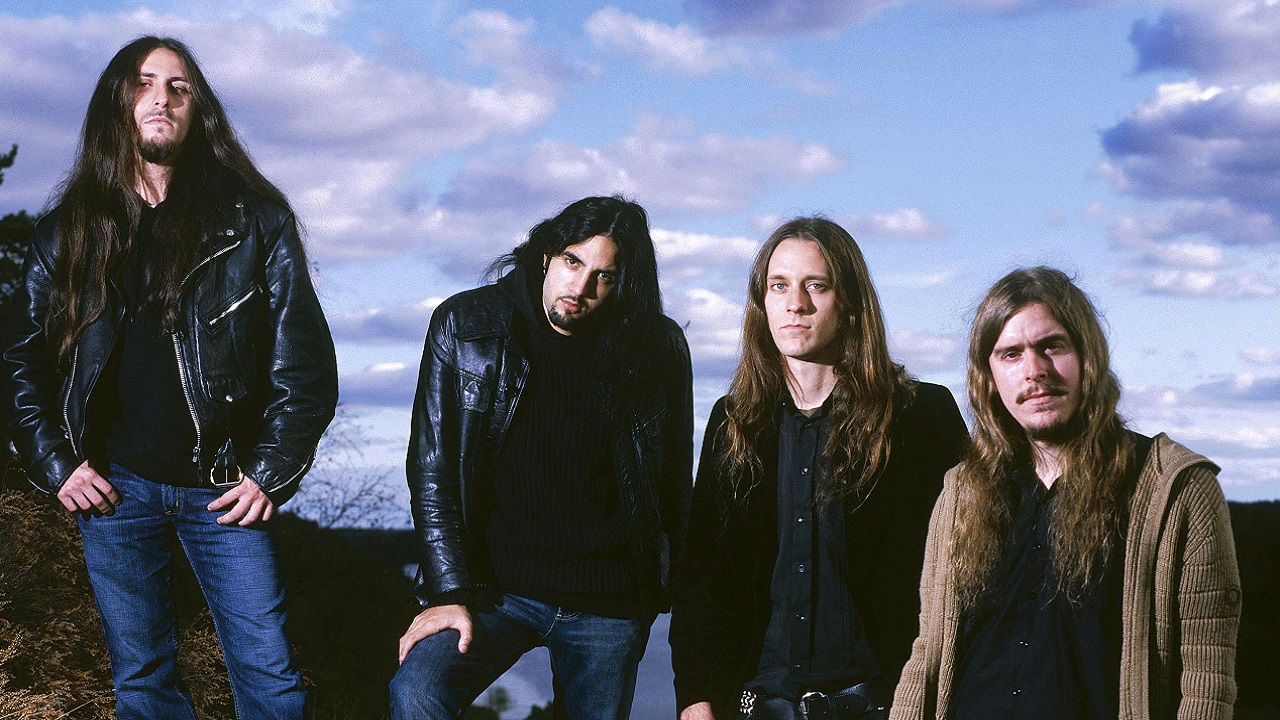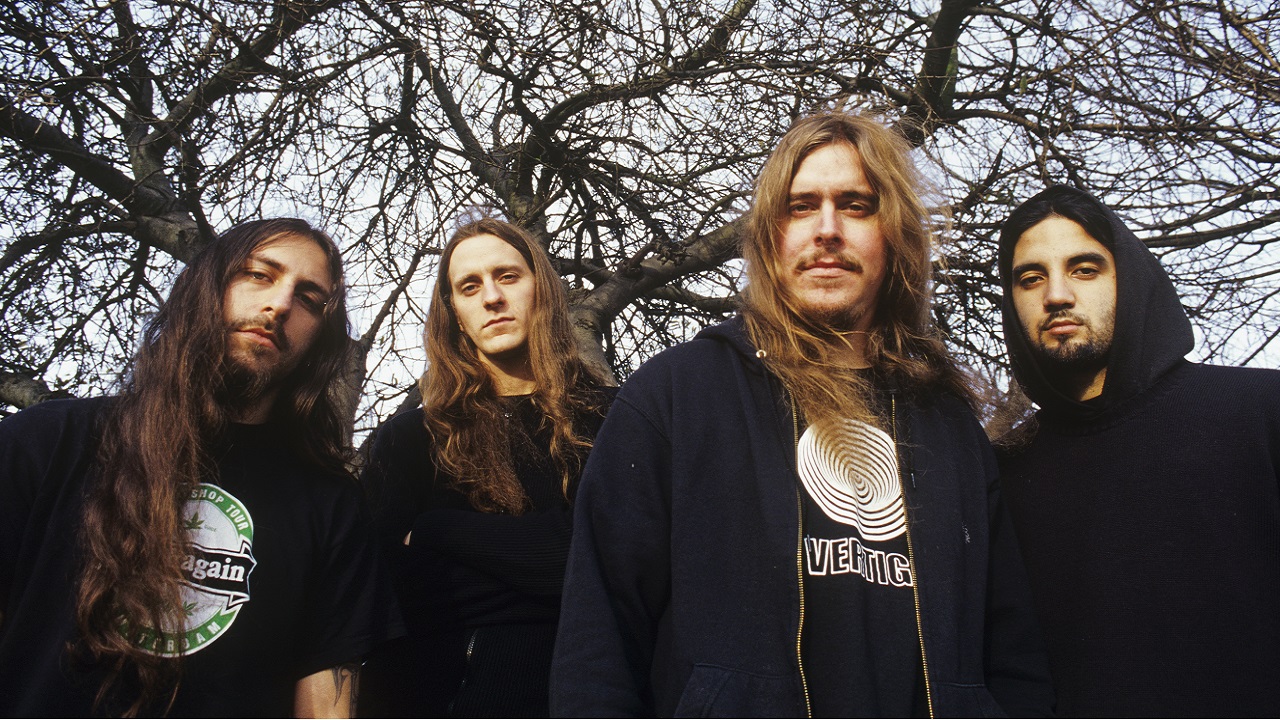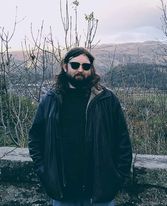On March 12, 2001, Opeth released their fifth album, Blackwater Park. It cemented the Swedish band’s status as prog metal masters, its ingenious fusion of everything from death metal and prog to black metal and folk leaving lasting ripples on the extreme metal scene. It was also the band’s first release with Music For Nations, the label that would help the band realise their ambitions for global recognition.
But for all the accolades heaped upon the album and its status as the record that broke Opeth to the wider world, frontman Mikael Åkerfeldt dismisses the idea of it suddenly turning the band into international metal stars.
“Blackwater Park has been hyped up as this big breakthrough for us, which it really wasn’t at the time,” he refutes. “We were touring, but a lot of that was these tiny little shows where we’d be supporting another band. I will say, Blackwater Park was the record that helped us move on.”
The shows might have been small, but Opeth’s shift to international touring was cause for plenty of excitement. More than a decade since they had formed in Stockholm, the band were finally living out some version of their dreams to be internationally touring musicians, graduating from isolated appearances at events like Milwaukee Metalfest and New Jersey’s March Metal Meltdown to roving US tours that would see them partying – “on a budget,” Mikael supplies, ever-eager to temper expectations.
But while his bandmates were indulging in the cheap beer and liquor that inevitably flowed in the wake of their US tour, for Mikael the gears were turning. The band’s frontman and chief songwriter, he was feeling the pressure to match the creative heights of their previous material while also building on Opeth’s budding commercial success.
“Don’t get me wrong, I partied,” he says, keen not to paint himself as some party-pooping curmudgeon. “But even if 95% of the times we had were happy, all I remember is the turmoil. The success alienated me from the other guys in the band; I wanted to be a team, but the Blackwater Park tour changed something. We weren’t really communicating well.”
Arriving home after the tour, Mikael immediately began working on material for their next album. Only, while he set out to write a “really heavy record” – even taking inspiration from fellow Swedes Meshuggah with a more technical approach to Opeth’s extremity – he soon found he also couldn’t stop writing melodious passages that he was loathe to ditch. What’s a metal genius to do? Consult another, naturally.
“Jonas [Renkse, Katatonia vocalist] is one of my best friends and we virtually lived together at the time, so he basically said ‘do two albums’ like it was no big deal,” Mikael recalls. “Of course, I loved the idea!”
But while Mikael was instantly sold on the idea of recording two albums – one face-blisteringly heavy, the other serene and melancholic – Music For Nations weren’t nearly so keen. “They said no,” Mikael says. “Their worry was that we were already trying to get out of our contract early if we did two albums at once. But I didn’t care about any of that, I just wanted to make the music.”
In his naivety, Mikael suggested a solution: Opeth would record both albums on a single budget, then stagger the release dates so they were seen as distinctive releases. The label agreed and Mikael’s plan would have been an act of genius… if he’d actually had any material written.
“I’d only got bits and pieces – maybe half of Deliverance and no finished songs at all for Damnation,” he admits sheepishly. “The songs were all written in the studio in the night, then we’d record in the days.”
If Mikael had been stressed before, it was nothing compared to the pressures of writing and recording two albums at the same time, with no time to rehearse material.
“Nobody knew what the fuck we were doing,” he recalls. “This was all pre-Pro Tools, so by the time we finished both records, I’d totally forgotten what was on the tapes! It was kind of exciting, but scary and weird at the same time.”
Forced to record across multiple studios due to building works and ongoing tour commitments, the pressure was taking its toll on Mikael, both mentally and physically (“my shit turned grey!” he exclaims). But amid the chaos and internal turmoil the band were struggling with, they at least found a creative co-conspirator to help steady the ship.
Porcupine Tree frontman Steven Wilson had worked with the band on Blackwater Park, and Mikael was eager to re-enlist him as a producer for their double-album experiment.
“I learned a lot from him, both about adding stuff and also taking something off in recordings,” Mikael says. “I’m like Yngwie Malmsteen in that sense – ‘More is more!’ Now when I try to write songs, I’ll take things out to see what happens, and that’s something that Steven taught me – both albums would have sounded completely different without him.”
But while he had a creative confidant, Mikael’s sense of isolation from his bandmates worsened as he got deeper into writing. In turn, it manifested in the more wistful lyrical content that would eventually characterise Damnation – nowhere more so than in album opener Windowpane.
While Opeth had dabbled in ballads previously, Windowpane was an ode to the prog records that Mikael had grown to adore over the years, with nimble-fingered guitar lines and melancholic lyrics evoking a sense of disaffected loneliness and brittle beauty. “I was creatively inspired because I felt alone, in a way,” Mikael muses. “But I’m not a quitter. I was hellbent on riding out the storm. I felt super-inspired – but also lonely.”
While loneliness provided some inspiration, other sources were more surprising. “The inspiration for Windowpane was Grand Theft Auto III,” Mikael reveals. “You’d jump in the car and you could listen to the radio. This song came on for one of the stations and there was a lyric about a windowpane. I thought, ‘Hey, that’s pretty nice.’”
The song in question was Fade Away, written and performed by composer Stuart Ross but credited in-game to the fictional musician ‘Craig Gray’. A chilled electronica track with trip-hop elements, the track is indicative of just how far afield Opeth were looking for inspiration when it came to evolving their craft.
“Deliverance was basically a well-trodden trail for us, so we knew exactly what to do,” Mikael admits. “Damnation was new, so everybody was a bit more inspired to try something else.”
As bizarre as the origins for Windowpane’s title were, Mikael admits the lyrical content of the song had a similarly odd beginning. “Whenever I go out walking, with my girlfriend or whatever, I’ll see a house, or maybe a couple, and you end up letting your imagination go wild, like, ‘I bet he’s going home and he’s gonna beat her up’ or something ridiculous like that, these fabrications you make based entirely on what you see,” he explains.
“That was kind of the idea with Windowpane – seeing someone at the window, looking in and making their own story about what’s going on inside, albeit a very dark story.”

Damnation was released on April 22, 2002, almost six months after Deliverance. Damnation became the first Opeth album to chart internationally, reaching a peak of No. 37 on the Finnish album charts, while also seeing the band break into the Top 200 in both the US and UK.
More surprising to Mikael, however, was the fact the album was largely well-received by the metal press. This was partly perhaps because, although Damnation was Opeth’s most melodic record, it was also their darkest.
“I was expecting really shitty reviews,” he admits. “I wanted to show that our musical interests and aspirations were coming from beyond the realms of metal music.”
With two albums to promote, Opeth soon found themselves on the road again as they embarked on a massive world tour. On consecutive US tours with Paradise Lost and Lacuna Coil, Mikael finally found time to unwind – and in Yorkshire’s grimmest, a sense of dourness that could challenge Mikael’s own dry worldview.
“The Paradise Lost guys were so miserable it’s funny!” Mikael chuckles. “We had a good time with both Lacuna Coil and Paradise Lost. I’d been such a huge fan [of Paradise Lost] that I worried they might end up being difficult, but I laughed so much on that tour.”
Today, Damnation material remains popular with fans, with Windowpane and In My Time Of Need dominating the band’s streaming stats. On Spotify, there have been more than 26 million plays of the former, and 17 million of the latter. In Mikael’s eyes, Damnation also set a precedent for Opeth being able to completely reinvent themselves creatively.
“In many ways, Damnation gave us a clean slate,” he reflects. “We could make another clean album, or another mixed album, or do something completely different. It brought us some leverage and helped us evolve. Thinking of it, it’s probably more of an important record for our development than Blackwater Park.”
The 20th anniversary reissue of Damnation is out now. Opeth play Bloodstock Festival in August.

